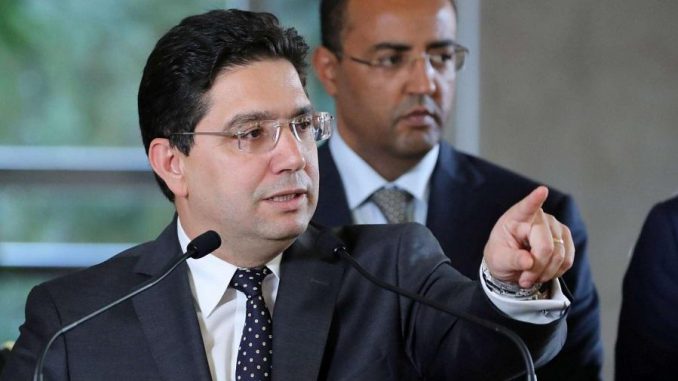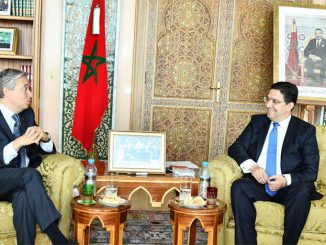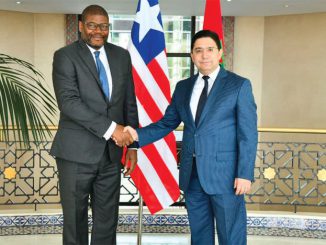
It would appear that Morocco is preparing to supervise, once again, the dialogue between the Libyan antagonists on the basis of the Skhirat Agreement, while taking into account the new developments in the Libyan crisis. The meeting of Foreign Minister Nasser Bourita with the representative of the Libyan Parliament, Abdelhadi Lahouij, General Haftar’s ally, in Rabat last Saturday, is a strong signal of the return of the kingdom in the search for a solution to this conflict. This is the second meeting between the two men after the one that brought them together in Congo last week during the meeting of the AU High Level Commission on Libya. However, a statement from the foreign ministry said that Morocco had received Abdelhadi Lahouij as an emissary of the speaker of parliament and not in his role as foreign minister of the Tobruk government.
The daily Akhbar Al Youm reported in its Monday February 10th edition that by making this clarification, Morocco recalls that it still considers the Tripoli government, led by Fayez Al-Sarraj, as the legitimate government recognized by the international community. The same statement indicates that the Libyan representative welcomed the Skhirat agreement and praised Morocco’s efforts to put an end to the Libyan crisis. At the same time, he urged the kingdom to continue to play its role at the Maghreb, Mediterranean and African levels to find a solution to this crisis.
At the end of the meeting with Abdelhadi Lahouij, a second statement from the Ministry of Foreign Affairs stressed that Minister Bourita had had a telephone call with the President of the Libyan High State Council, Khaled Mechri, during which they discussed the latest developments in Libya. In a statement on the official website of the Ministry of Foreign Affairs, Mechri reaffirmed his commitment to the Skhirat agreement and expressed his pleasure at the idea that Morocco could host the Libyan dialogue for the second time. The latest developments show that the Libyan antagonists want Morocco to host a new round of dialogue on the basis of the Skhirat agreement, which they consider to be the legal reference for any political solution to the crisis. In doing so, Morocco’s role will be more consistent, firstly because of the legal reference that characterizes the Skhirat Agreement and, secondly, because of the difficulties encountered by the Berlin Agreement, which has not succeeded in transforming the current truce into a lasting peace.
The daily Al Ahdath Al Maghribia, which makes the same analysis in its Monday edition, says that the Libyan representative described “the Skhirat agreement as excellent, while regretting that its provisions have not been implemented. The Libyan parliament will accept any solution that will lead to a citizen and human rights state without anarchy, arms, militias or terrorism”. In addition, the Minister Delegate to the Minister of Foreign Affairs, Mohcine Jazouli, said last Saturday in Addis Ababa that the 2015 Skhirat political agreement was a reference for reaching a solution to the Libyan crisis.
At a high-level meeting of the AU Peace and Security Council, Jazouli stressed that “the Skhirat agreement was a reference for assimilating the new situation and finding a solution to end the clashes but also to bury past conflicts in order to unify the Libyan armed forces”. In front of an audience of heads of state including the presidents of Egypt (Sissi), Congo (Sasso Nguisso), Djibouti (Ismael Omar), as well as the UN Secretary General (Antonio Guterres), Jazouli chose his words well to dig up the Skhirat agreement and bury the Berlin agreement by affirming: “The Skhirat Agreement, which has been welcomed by regional and international organizations, is not the result of diplomatic meetings, but the fruit of long discussions among Libyans themselves’.




Be the first to comment